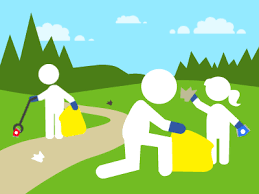
Littering, or what littering means to us today (think throwing a styrofoam cup out your car window), is actually a rather modern problem. It wasn’t until the 1950s or so that manufacturers began producing a higher volume of litter-creating material, such as disposable products and packaging produced with materials such as plastic. That said, the impact of littering has been swift in those short few decades: about 8 million tons of plastic waste finds its way into the oceans annually and litter continues to largely be a deliberate act.
It can be difficult to fully comprehend the monumental effects throwing a cup out a window or dropping food packaging on the ground can have. To decrease littering in your community, it’s important to understand tje following littering facts can arm you to help do your part to end littering and encourage others to do the same.
What is littering?
Littering is the improper disposal of waste products. Littering can happen intentionally or unintentionally, but both have environmental consequences.
What are the Most Commonly-Littered Items?
Litter can take a variety of forms, but some items are littered more frequently than others. In a study by Keep America Beautiful, researchers found that the most littered items include:
- Cigarette butts
- Food wrappers
- Plastic bottles
- Disposable cups
- Grocery bags
- Straws
- Beverage cans
- Tire and vehicle debris
Why Do People Litter?
To stop littering, it’s important to know why people litter. While 19.9% of litter on land comes from unsecured items in the back of trucks or trash receptacles, the vast majority of litter originates intentionally. Keep America Beautiful found that 76% of litter on roadways comes from motorists and pedestrians.
But why do people intentionally litter? The justification behind littering is quite simple and generally boils down to one of four reasons:
- Laziness or carelessness
- Lack of access to trash receptacles
- Lenient law enforcement
- Presence of litter already in the area
This last point is why we collect litter, arrange pick-up days and generally encourage folks to clean up around their homes and businesses. The less little you see, the less likely people are to litter. Messy roadways stay messy. Hopefully, clean roadways stay cleaner.
Please do you part.
